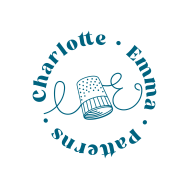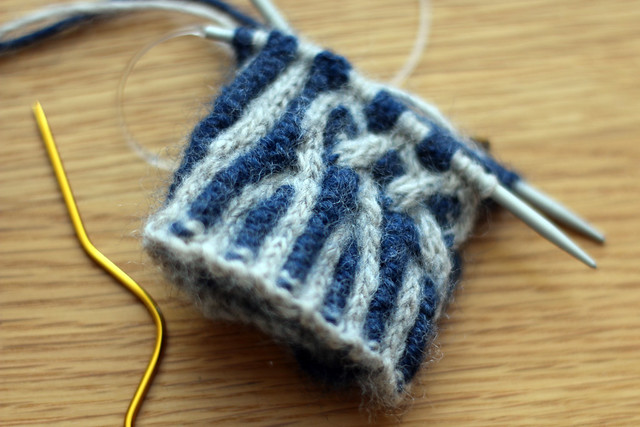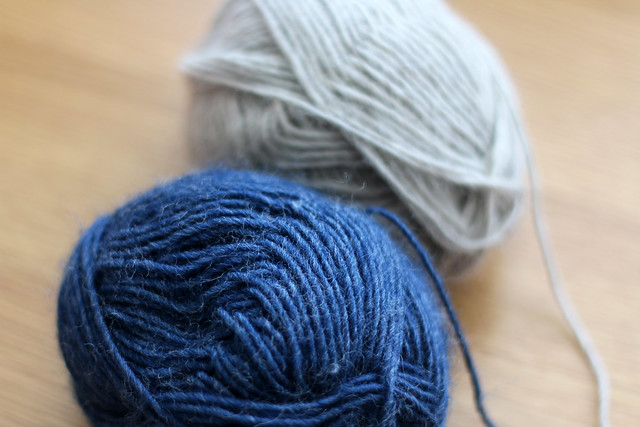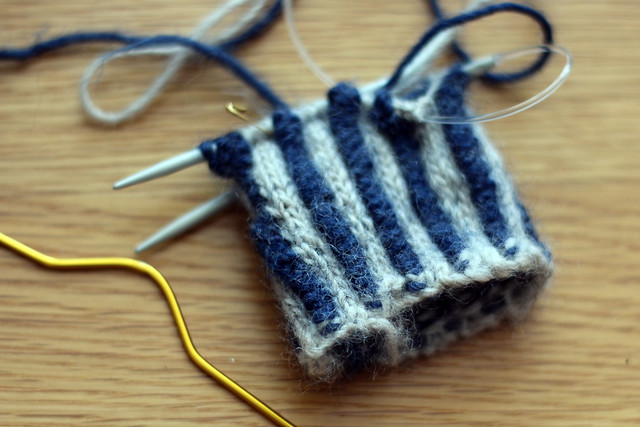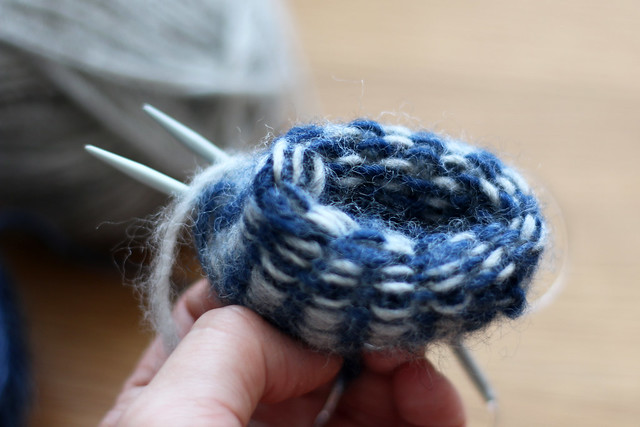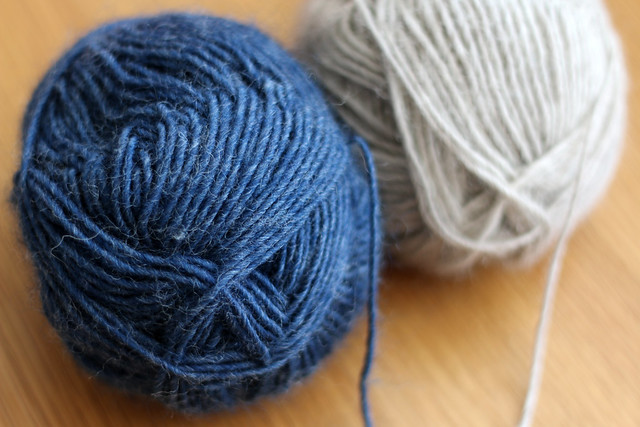My productive knitting stretch continues. I’ve recently cast on the Brigantia mittens by Victoria Magnus, which feature colour work and cables. I’m new to colour work and these mittens are a fairly simple project to start learning, but I’ve still managed to make a few errors. I suspect mitten number two, may be a lot more polished than mitten number one!
I’m knitting them in the new Wendy Ramsdale yarn, supplied by Little Lamb Wool, a family-run yarn shop in North Yorkshire. Ramsdale is a DK weight yarn in ten colours, each named after a Yorkshire market town. I’m using the Malham and Hawes shades, which I think are a great match for the Brigantia pattern.
Ramsdale is a single ply yarn and has a really ‘wooly’ feel, with a slight fuzzy halo. I’m really enjoying knitting with it.
It is spun from 100% pure British wool, which is grown, spun and dyed in Yorkshire, local to Little Lamb Wool, where my skeins came from.
I’ve become a bit obsessed with knitting with British wool, as a result of taking part in Nicki’s One Year One Outfit project, and listening to the KnitBritish podcast. I’ve completed three #1year1outfit projects so far, socks (which I later dyed), gloves and a scarf (as yet unblogged). These mittens will be my fourth project. So far I’ve focused on accessories, but I have plans to knit a cardigan and a jumper, and to sew some clothing soon too.
As a result of #1year1outfit, I’ve spent some time researching British fibres and fabrics and thought it would be useful to share my findings. If you’re aware of any interesting resources I’ve missed please do share.
British Wool
Britain has a long history of woolen fabric production, so the majority of British fabric I have been able to locate is wool.
A brilliant source of information on British wool products (fabric, yarn, and just about everything else) is Woolsack, which was created by Sue Blacker. Woolsack can also be found on Ravelry. The Woolsack list of British wool fabric stockists is located here. The British Wool Marketing Board website also provides a list of British companies producing wool fabrics.
Fabric
A number of the British companies producing fabric don’t sell direct to consumers and/or online. Some that do are listed below:
London Cloth Company – London-based micro-mill specialising in weaving to order, but with cloth also available via the meterage
Dashing Tweeds – London-based (menswear) company/store with a range of British wool fabrics
Harris Tweed and Knitwear – Family company producing a range of Harris Tweed cloth and products
Harris Tweed Hebrides – Wide selection of tweeds
Hebridean Wool House – Tweeds made with wool from hebridean sheep (listed under ‘tweed products’)
Robert Noble – Established in 1666, and now producing cloth at a Scottish mill
Ardalanish – A range of tweeds woven using 100% pure new Hebridean, Manx and Shetland wool
Shawbost Weavers – Harris Tweed – Catherine weaves single width (75cm) Harris Tweed by traditional methods on a Hattersley loom. She sells via her Facebook page. It’s approximately £17.50 per metre; payment is via paypal.
The following online fabric shops are also good sources of British wool fabrics. You may need to request further information about a specific product to confirm that it is 100% British (e.g. British wool and woven/dyed in the UK).
MacCullock & Wallis – A number of fabrics in the Wool Fabrics section are listed as made in the UK. You’ll need to select individual items to find out, although you’ll definitely be ok with the Harris Tweeds:)
Croft Mill – Croft Mill allow you to view products under a ‘British Fabric‘ heading – yay
Merchant & Mills – A number of fabrics in the Wool & Tweed section are listed as made in the UK. You’ll need to select individual items to find out.
Herts Specialist Fabrics stock a range of British wool fabric, including undyed wool suitable for home dyeing.
Yarn
There are a wide range of UK companies producing British wool yarns. The online store BritYarn is a great place to shop for them, since it only sells wool which is 100% British grown. I’d also particularly recommend Blacker Yarns, Jamieson & Smith, John Arbon, and local-to-me TOFT. For an extensive list see Woolsack.
I’ve also learned loads about British wool from the KnitBritish blog and podcast.
British Silk
Organic Silks in London produce a range of peace silks. I was tipped off to this by Steely Seamstress, who has already dyed and made a top with some of their silk. To order, you need to email them to confirm a price, and can then pay by card over the phone.
British Linen
Herts Specialist Fabrics stock Irish linen fabric and threads, as well as British wool and damask fabrics.
Lace
Cluny Lace have been producing lace in Ilkeston for nine generations. They mainly sell direct to design houses, but you can purchase small quantities of their lace via a number of stockists, who mainly sell lace trims. Magic Round About Vintage clearly list which of their lace trims and fabrics are produced by Cluny in the UK. Little Trimmings and The Ribbon Girl are also stockists, but their website are less clear which laces are made in the UK. You can also buy direct from Blue Riband in Kent or Kleins in London. The lace is made with Egyptian cotton and is finished (washed / dyed) in France, but is woven in the UK on historical Leavers Lace machines.
Haberdashery Supplies
Irish linen thread is availble from Herts Specialist Fabrics.
Pewter Buttons stock a range of historical-inspired buttons made in the UK with English pewter.
John James stock a wide range of needles for sewing and weaving.
Ernest Wright and Son is a family company making scissors and shears in Sheffield since 1902.
Beyond Measure stock a range of British-made haberdashery items, including buttons, wooden items by Hugh Leishman, and leather goods by Awl Co.
Disclaimer: I was provided with two free skeins of yarn by Little Lamb Wool; all opinions expressed are my own.
